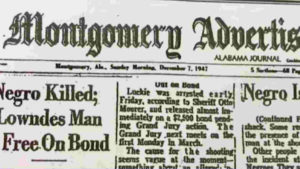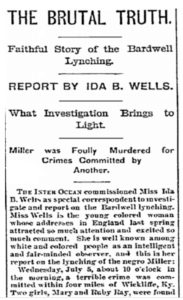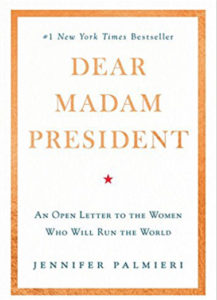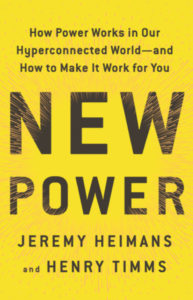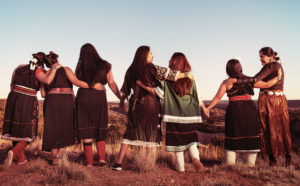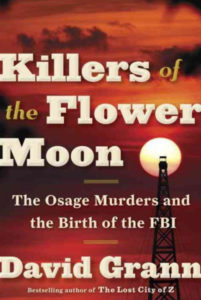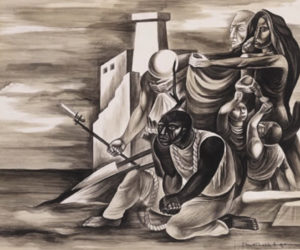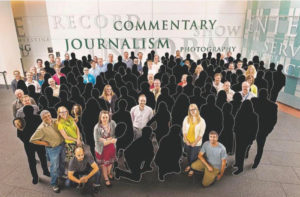…unfolding what is within.
April 29, 2018The physical structure of the universe is love.
—Pierre Teilhard de Chardin (1881-1955)
Wrapped within young leaves: the sound of water.
—Soseki
”Our gift already unfolded. Embedded in the seed is the blossom. embedded in the womb is the child fully grown. Embedded in the impulse to care is the peace of love realized. Embedded in the edge of risk and fear is the authenticity that makes life worth living.
For as dust owes its path to wind, we, as human beings, are asked to acknowledge that something larger encircles us and prompts us to unfold.
There is a gravity of spirit that pulls the essence of who we are into being. Our job, like all our sister creatures, is to find the abundance of air and water and light, and to unfold what is already within us.”
-Mark Nepo
❥
April 26, 2018Anguish and suffering visualized in memoriam.
“The tortuous road which has led from Montgomery, Alabama…”
Martin Luther King, Jr.
MONTGOMERY, Ala. — In a plain brown building sits an office run by the Alabama Board of Pardons and Paroles, a place for people who have been held accountable for their crimes and duly expressed remorse.
Just a few yards up the street lies a different kind of rehabilitation center, for a country that has not been held to nearly the same standard.
The National Memorial for Peace and Justice, which opens Thursday on a six-acre site overlooking the Alabama State Capitol, is dedicated to the victims of American white supremacy. And it demands a reckoning with one of the nation’s least recognized atrocities: the lynching of thousands of black people in a decades-long campaign of racist terror.
At the center is a grim cloister, a walkway with 800 weathered steel columns, all hanging from a roof. Etched on each column is the name of an American county and the people who were lynched there, most listed by name, many simply as “unknown.” The columns meet you first at eye level, like the headstones that lynching victims were rarely given. But as you walk, the floor steadily descends; by the end, the columns are all dangling above, leaving you in the position of the callous spectators in old photographs of public lynchings. [NYTimes]
‘A Lynching Memorial in Montgomery; the country has never seen anything like it.’
In the century after the Civil War, more than 4,000 black Americans were lynched. Men, women and children were publicly tortured and killed in acts of mob violence meant to incite fear. (1A:NPR)
‘It’s time to end the silence.’
Equal Justice Initiative (EJI)
The Equal Justice Initiative (EJI) is committed to ending mass incarceration and excessive punishment in the United States, to challenging racial and economic injustice, and to protecting basic human rights for the most vulnerable people in American society.
Founded in 1989 by Bryan Stevenson, a widely acclaimed public interest lawyer and best-selling author of Just Mercy, EJI is a private, 501(c)(3) nonprofit organization. We work with communities that have been marginalized by poverty and discouraged by unequal treatment, and we are committed to changing the narrative about race in America.
“Bryan Stevenson wants people to examine an era of American history that goes ignored — a chapter often left untold. It was a time, he says, of domestic terrorism.
Between 1877 and 1950, more than 4,400 black people died by lynching, according to statistics compiled by the Equal Justice Initiative, a nonprofit organization that provides legal representation to inmates and works to alleviate racial and economic injustice.
You’ve got to first tell the truth about what happened and then you can begin to understand what is required to recover, to make repairs, to restore, to reconcile. And I don’t want to deny any county in America that has a history of lynching an opportunity to localize this project, this effort.
I really do believe that the great evil of American slavery was this narrative of racial difference. This ideology of white supremacy. Our 13th Amendment ended involuntary servitude and forced labor, but it did not end this narrative of racial difference. Because of that I don’t think slavery ended, I think it just evolved and that’s what created decades of terrorism and lynching.
More than 6 million people fled the American South during this period of time, and the demographic geography of our nation was shaped by this violence.” [LATimes]
It was a time, he says, of domestic terrorism.
In context of ‘domestic terrorism’ is the unfolding story of ‘white power’ in America.
NPR
“Kathleen Belew, who has spent more than 10 years studying America’s White Power movement, traces the movement’s rise to the end of the Vietnam War, and the feeling among some “white power” veterans that the country had betrayed them.
In her new book, Bring the War Home, Belew argues that as disparate racist groups came together, the movement’s goal shifted from one of “vigilante activism” to something more wide-reaching: “It’s aimed at unseating the federal government. … It’s aimed at undermining infrastructure and currency to foment race war.
So if you think about the Klan in the 1920s, which is the example that most people are familiar with, it’s very overtly and properly nationalist. … It was out in the mainstream. It was very social. It was very overt. It was purported to be “for America” and their slogan indeed was “100 percent Americanism.”
So fast forward to 1983, and we’re looking at something completely different. This is now a coalition of united racist groups that is openly anti-government, that is focused on a transnational white nation and that is using texts and ideologies that call for an apocalyptic confrontation with everybody else.
“The White Power movement in America wants a revolution.”
Bring the War Home is a tour de force. An utterly engrossing and piercingly argued history that tracks how the seismic aftershocks of the Vietnam War gave rise to a white power movement whose toxic admixture of violent bigotry, antigovernmental hostility, and racial terrorism helped set the stage for Waco, the Oklahoma City bombing, and, yes, the presidency of Donald Trump.”―Junot Díaz
“Many people thought that they were living through a real progress moment of American history, and we had this idea, even as historians, of a “post-racial” moment, or a colorblind moment, or a multicultural moment. And I think what this story shows us is where overt racism went during the time that we thought of as peaceful and race-neutral. And that instead we were looking at this submerging and resurging story.” [Belew]
“Anyway, y’all need to come to Montgomery and see this memorial.”
John Legend
Undefeated.
April 25, 2018“I am not even sure who you are. Are you, at this moment, sitting on Capitol Hill or in a state house? Are you a young teacher in Maryland wondering if you should run for something? Are you a volunteer mentoring students on the west side of Chicago? Are you browsing through a bookstore in Atlanta, wholly unaware of what your future holds? I don’t know if you are a Democrat or Republican or something else, I just know you are out there somewhere.”
And I can’t wait to meet you.
Incel: misogynist ideology
“Incel Rebellion.” This is not an organized militant group but rather an ideal developed by the so-called “incel” movement — an online community of men united by their inability to convince women to have sex with them. (“Incel” stands for “involuntarily celibate.”)
It’s a new kind of danger, a testament to the power of online communities to radicalize frustrated young men based on their most personal and painful grievances.
The Facebook post “situates the attack as extremist and terrorist,” says J.M. Berger, an expert at the International Center for Counter-Terrorism in the Hague. “Misogyny isn’t new, and ideological misogyny isn’t new. Having a distinct movement that is primarily defined by misogyny is [fairly] novel.”
Many of them are simply sad and lonely men, suffering from extreme social anxiety or deep depression. Some of these moderate incels actively police the extremists in their midst; in a sympathetic 2015 profile, the Washington Post’s Caitlin Dewey reported that some incel forums were set up to automatically delete any posts referencing the California shooter.
But many incels have a much more sinister, and specific, worldview — one that the Southern Poverty Law Center sees as part of a dangerous trend toward male radicalization online. These incels post obsessively about so-called “Chads,” meaning sexually successful and attractive men, and “Stacys,” attractive, promiscuous women who sleep with the Chads. Both are positioned as unattainable: The Chad is the masculine ideal, one incel men cannot emulate for reasons of poor genetics, while the Stacy is whom every incel man wants to sleep with but cannot because they aren’t a Chad.
This is how inceldom becomes a political doctrine: They see themselves as a class, oppressed by a social system that’s rigged in favor of other men. One post on an incel subreddit compared their worldview to Marxism, with incels playing the part of the proletariat and Chad the bourgeoisie. The natural corollary of this idea is clear: If the root of the problem is an unfair social system, then there needs to be a revolution to change it.
Does this mean we should just throw up our hands and say that the radicalization of some young men toward violent misogyny is inevitable? Of course not. Carvin suggests that social outreach programs, focusing on countering the sense of isolation that draws young men to these communities in the first place, might be a better idea than standing up a potential counter-incel task force at the FBI. (No such group is currently known to exist.)
But regardless of what the right solution is, we need to be clear-eyed about the type of challenge we’re facing. The internet makes it easier than ever for sad and angry people to find each other and develop communities with weird and dangerous ideologies. What we’re seeing right now is one of society’s oldest hatreds, misogyny, being reworked in real time to fit a specific group of men’s rage and pain.
VOX
By Zack Beauchamp
zach@vox.com
Full article:
https://www.vox.com/world/2018/4/25/17277496/incel-toronto-attack-alek-minassian
Outwaiting the cloud.
April 19, 2018Science of Mind:
There is a place where we begin and leave off physically, but there is no place where we begin and leave off mentally or spiritually.
If we do not merge with others in cooperation, in unity, and in happiness, we may be certain that there is something in us that feels it has been rebuffed or rejected.
Mark Nepo:
In truth, the heart, like the Earth, is continually blanketed by ever-changing atmospheres that come and go between who we are and how we leave our days.
If we could only suspend our judgement when clouded in the heart. For many skepticisms are born from conclusions draw while unable to see, as if any kind of understanding will prevent the clouds from coming or going, again and again.
But no clouds last forever.
The Earth and all that grows from it knows this well. So does the heart and everything that grows from it, in spite of all our very understandable pains.
Traditional, Inclusive & Creating with Integrity
April 17, 2018…a group of folks figuring out how to be a liturgical,
Christo-centric, social justice-oriented, queer-inclusive,
incarnational, contemplative, irreverent, ancient / future
church with a progressive but deeply rooted theological imagination.
“And it started with eight people in my living room (seven) years ago.
And it’s such a freak show. OK, the thing is, is literally you walk in now and you will see a convicted felon serving communion to a statewide elected official next to a teenager with pink hair holding the baby of a soccer mom from the suburbs. And I thought the weirdness of my congregation was going to be diluted, right? It is only weirder now. You walk in, you go, “I am unclear what all these people have in common.”
‘But you were born for such a day as this.’ […] And my parents embraced me and they gave me a blessing and they prayed over me. And like it’s very scriptural that you need a blessing to go and do what you’re going to do and to be who God’s called you to be. And the fact that my blessing got to come from my Church of Christ parents is one of the most profound gifts in my lifetime.
And so if people feel that God has called them to something and you have trepidation, you need to get a blessing from someone. And if it can’t be your parents, find somebody else, because I cannot tell you how that released me and freed me to go and do the work I did. And I feel like it’s this thing in the Bible that we’ve forgotten about. And for me, it ended up being really critical and profound to go with a blessing.”
-Luther Pastor Nadia Bolz-Webber, House for All Sinners and Saints, Denver
[On giving the sermon at the funeral of a teenage boy who had committed suicide
When I heard about this kid, and I heard about all of these wonderful things about him, and how queer he was, and how he played piano, all this stuff about him — he struggled with just a tiny bit of heroin and mental health problems. When I heard about him, I thought, “That is exactly the kind of guy Jesus would hang out with.” We see the cast of characters Jesus surrounded himself with, people for whom life was hard, and who had some colorful things going on, and rank fishermen, and prostitutes, and tax collectors, and these are the kind of people Jesus chose to surround himself with, and I think that’s important. I have no idea how Christianity went from that to what it is now.]
__________
‘For most of human history, the rules of power were clear: power was something to be seized and then jealously guarded. This “old power” was out of reach for the vast majority of people. But our ubiquitous connectivity makes possible a different kind of power. “New power” is made by many. It is open, participatory, and peer-driven. It works like a current, not a currency–and it is most forceful when it surges. The battle between old and new power is determining who governs us, how we work, and even how we think and feel.’
[goodreads.com]
。。·*・。 ゚* ゚ *.。☆。★ ・ * ★ ゚・。 * 。 ・ ゚☆ 。 。・゚*.* ★ ゚・。 *·*・。 ゚*
April 15, 2018‘My soul is from elsewhere, I’m sure of that, and I intend to end up there.’
-Rumi
“Prince-elector, I’m not aware of that.”
April 14, 2018Duke of Saxony: Well, if so, how do you sustain a business model in which users don’t pay for your service?
Gutenberg: Prince-elector, we print indulgences.
Highlights From the Gutenberg Hearings
An empire’s potentates size up the risks of new technology
By Andrew Kahn
[slate.com]
Archbishop of Cologne: Let’s say I’m communicating with my friends using a printing press and indicate that I love a certain kind of chocolate. And all of a sudden I start seeing, all along the edges of my Bible, little decorations about chocolate: Jesus eating chocolate, apostles wrestling a bar of chocolate, a big letter A covered in flowers made out of chocolate. What if I don’t want to receive those illuminations?
Gutenberg: We’re considering letting users pay a small fee not to see the chocolate.
Trier: But consider if someone in another country—like Saxony, for example—if a man—a large, 400-pound man in Saxony—he hacked your pringus to put out papers with, written on the documents, the pope’s worst mistake and then he asked the devil to convince everybody, using these fake propagandas, to convince them against the pope?
Gutenberg: Prince—
Trier: And then we get the gosh-darned Thirty Years’ War.
[Gutenberg blinks.]
Brilliant. Full article:
https://slate.com/technology/2018/04/if-the-zuckerberg-hearing-were-the-gutenberg-hearing.html
Just ‘playing through’ the apocalypse.
The Decemberists’ Shiny, Happy Protest Album
“There’s something therapeutic in looking at the apocalypse and laughing,” Colin Meloy says of the band’s I’ll Be Your Girl.
Spencer Kornhaber
[Excerpt from interview with The Decembrists’ Colin Meloy in The Atlantic]
Kornhaber: I saw you called the album an “apocalyptic dance party,” which feels like a term that could describe a lot of albums lately.
Meloy: We’re having a very shared experience. It’s almost galvanizing, people coming out of the woodwork and saying, “Shit is fucked up.” There’s something therapeutic in looking at the apocalypse and laughing.
I was hearing a story about that incident in Hawaii when a false missile alert came down. There were a couple guys on a golf course whose phones went off at the same time, and they went through how much time they had, where they could go, what they could actually accomplish. And they came to the conclusion that the best thing they could do is continue playing golf. There was nothing else they could do. That, in some ways, is a shared experience in this country right now.
Kornhaber: That story sounds like a future Decemberists song topic. But there’s a capitulation in it, right?
Meloy: Obviously the golfers in Hawaii is not analogous to our current predicament. It is a thought experiment: The apocalypse is 10 minutes away; what really can you do? If you want to talk literally, I don’t think we are in that dire circumstances. Responding to that intuition to shout out that things are broken is some way forward. We’re not leading the charge, but it feels good to lend our voices to that ever-growing chorus of people who are saying, This is not right.
Kornhaber: How much do you want this read as a Trump album?
Meloy: I don’t think I set out to make an overtly topical or political record. The songs just came from where we were and where my head was at in the last year and a half. I didn’t want to go too over-the-top. For one thing, I don’t know that I feel like the white straight-male voice is really the voice that needs to be amplified right now, or necessarily be the one singing protest music. There is powerful and topical music to be made by those communities who are oppressed. I don’t think it’s necessarily my place. That said, you can’t help but have some of that stuff just come through the cracks as you’re working.
Full article:
Restructuring the narrative.
5 Indigenous Women Asserting the Modern Matriarchy
They’re reclaiming the tradition of female leadership and turning the old, white, male-dominated perspective of history on its head.
It is precisely because this historical narrative is biased that righting this wrong isn’t as simple as cherry-picking the names of notable Native women and inserting them into textbooks or other media. In order to truly improve public understanding of important indigenous women in history, the entire narrative has to be restructured. And who better to do that than Native women themselves?
Today, contemporary indigenous women are taking the matter into their own hands and showing the public how to rethink, reframe, and relearn a new American-Canadian story that seamlessly incorporates the voices of indigenous women. These women are living in the tradition of their ancestors, whose societies and nations were often matriarchal. They are reclaiming the tradition of female leadership and turning the old, white, male-dominated perspective of history on its head.
The following are five Native American and First Nations women who are using their platforms in such profound ways that they are also, in a sense, making history.
Follow link:
http://www.yesmagazine.org/peace-justice/5-indigenous-women-asserting-the-modern-matriarchy-20180330
_______
Mountain West News Bureau
Nate Hegyi
“The data breach prompted a “Delete Facebook” movement that hasn’t really gained any traction.
That’s especially true in the Native American community, where Facebook is much more than sharing cat videos or keeping in touch with friends and family.
Social media is vital in Indian Country. It helps connect communities and reservations that are scattered across North America. Many are in rural, isolated places that don’t get a lot of attention from national media outlets.
Places like Pablo, a small, one-highway town in northwest Montana where Patrick Yawakie goes to college. He was an organizer for Native Lives Matter a couple years ago.
And in Indian Country that message can also be about mundane things — from community classes to bike donations and fundraisers. And then there are public service announcements that can actually save lives.
When a bad blizzard caused a state of emergency on the Blackfeet Reservation in Montana, people used Facebook to warn which roads were closed and to get food to needy families.
But as much as she loves Facebook, Lamb said indigenous communities would find other ways to get in touch and organize if it disappeared. She pointed to the founding of the American Indian Movement in the late 1960s.
“They didn’t have Facebook and I think they got a lot of things done,” she said. “So they would obviously adapt and change to the world and find a way. There’s always a way.”
Full article:
______
NPR
“A true account of the early 20th-century murders of dozens of wealthy Osage and law-enforcement officials, citing the contributions and missteps of a fledgling FBI that eventually uncovered one of the most chilling conspiracies in American history.”
“In his new book, Killers of the Flower Moon, David Grann describes how white people in the area conspired to kill Osage members in order steal their oil wealth, which could only be passed on through inheritance. “This was a culture of complicity,” he says, “and it was allowed to go on for so long because so many people were part of the plot. You had lawmen, you had prosecutors, you had the reporters who wouldn’t cover it. You had oilmen who wouldn’t speak out. You had morticians who would cover up the murders when they buried the body. You had doctors who helped give poison to people.”
Steve Inskeep and author David Gann:
“We hold the mystery of transformation…’
April 13, 2018Richard Rohr, American Franciscan friar and author
”Being on the edge of the inside…”
“Your body is not an isolated, separate entity. We are our truest selves only in community—with our ancestors (carrying their stories and DNA), our natural environment, and our neighbors. We hold the mystery of transformation…”
Today Barbara Holmes continues reflecting on the Black Lives Matter Movement (BLMM) and their evolving, embodied way of fighting for justice:
As the millennials will tell you, “This is not your grandmother’s Civil Rights Movement (CRM).
”They are right. Although both the CRM and BLMM seek the betterment of life for black people and their communities and both resist oppression with contemplative practices and activism, they use different strategies and leadership models and seek different goals. . . .
The BLMM is a decentralized network of local organizations. . . . Patrisse Cullors, a founder of the BLMM, says, “We are not leaderless, we are leader-full.” [1] . . . It is difficult to infiltrate, undermine, or disrupt an organic movement that draws its power from regenerating communal cells. . . .
During the CRM, the blindness of dominant culture to the plight of the African American community meant that the message had to be delivered by one voice in language that white Americans could understand and support. Lives were at stake, and [Martin Luther] King’s biblical and patriotic references combined with his soaring oratory ignited the nation and inspired the movement.
Now, fifty plus years after the CRM, another approach is needed, and the BLMM like the LGBTQIA justice movements are updating the art of contemplative confrontation and noncompliance with the status quo . . . oppression and violence against black bodies. Today, the most respectable image that young protesters can offer is their authenticity, resolute voices, and pride in community and culture. . . . The BLMM uses disruption for transformation rather than the predictable politeness and political compromises that were part of the ordinary negotiations of social activists. . . .
They block traffic and refuse to allow “business as usual.” The response is not riot or violence, it is the twenty-first-century version of the sit-in. CRM activists got parade permits and stayed along the side of the road so as not to interfere with traffic. BLM activists “shut it down” with song, putting their bodies on the line. . . .
BLM activists are not singing “we shall overcome,” they are not saying “I am yet holding on” or “making a way out of no way” like the church mothers and fathers of old. They are saying “we ain’t gonna stop ‘til our people are free” and “I can’t breathe,” as they shut down malls and highways to stop the killing of young black men and women. [Far too often, by the very officers who are supposed to “protect and serve,” I might add.]
#
1935
April 11, 2018Let America Be America Again
Let America be America again.
Let it be the dream it used to be.
Let it be the pioneer on the plain
Seeking a home where he himself is free.
(America never was America to me.)
Let America be the dream the dreamers dreamed–
Let it be that great strong land of love
Where never kings connive nor tyrants scheme
That any man be crushed by one above.
(It never was America to me.)
O, let my land be a land where Liberty
Is crowned with no false patriotic wreath,
But opportunity is real, and life is free,
Equality is in the air we breathe.
(There’s never been equality for me,
Nor freedom in this “homeland of the free.”)
Say, who are you that mumbles in the dark?
And who are you that draws your veil across the stars?
I am the poor white, fooled and pushed apart,
I am the Negro bearing slavery’s scars.
I am the red man driven from the land,
I am the immigrant clutching the hope I seek–
And finding only the same old stupid plan
Of dog eat dog, of mighty crush the weak.
I am the young man, full of strength and hope,
Tangled in that ancient endless chain
Of profit, power, gain, of grab the land!
Of grab the gold! Of grab the ways of satisfying need!
Of work the men! Of take the pay!
Of owning everything for one’s own greed!
I am the farmer, bondsman to the soil.
I am the worker sold to the machine.
I am the Negro, servant to you all.
I am the people, humble, hungry, mean–
Hungry yet today despite the dream.
Beaten yet today–O, Pioneers!
I am the man who never got ahead,
The poorest worker bartered through the years.
Yet I’m the one who dreamt our basic dream
In the Old World while still a serf of kings,
Who dreamt a dream so strong, so brave, so true,
That even yet its mighty daring sings
In every brick and stone, in every furrow turned
That’s made America the land it has become.
O, I’m the man who sailed those early seas
In search of what I meant to be my home–
For I’m the one who left dark Ireland’s shore,
And Poland’s plain, and England’s grassy lea,
And torn from Black Africa’s strand I came
To build a “homeland of the free.”
The free?
Who said the free? Not me?
Surely not me? The millions on relief today?
The millions shot down when we strike?
The millions who have nothing for our pay?
For all the dreams we’ve dreamed
And all the songs we’ve sung
And all the hopes we’ve held
And all the flags we’ve hung,
The millions who have nothing for our pay–
Except the dream that’s almost dead today.
O, let America be America again–
The land that never has been yet–
And yet must be–the land where every man is free.
The land that’s mine–the poor man’s, Indian’s, Negro’s, ME–
Who made America,
Whose sweat and blood, whose faith and pain,
Whose hand at the foundry, whose plow in the rain,
Must bring back our mighty dream again.
Sure, call me any ugly name you choose–
The steel of freedom does not stain.
From those who live like leeches on the people’s lives,
We must take back our land again,
America!
O, yes,
I say it plain,
America never was America to me,
And yet I swear this oath–
America will be!
Out of the rack and ruin of our gangster death,
The rape and rot of graft, and stealth, and lies,
We, the people, must redeem
The land, the mines, the plants, the rivers.
The mountains and the endless plain–
All, all the stretch of these great green states–
And make America again!
-Langston Hughes, 1902-1967
Intracommunication.
April 9, 2018The core of journalism: betrayal.
BuzzFeed
Ben Smith, BuzzFeed Editor-in-Chief
“This Is What It Was Like Learning To Report Before Fake News Was The Biggest Problem In The World
As a young reporter in Eastern Europe in 2001, I expected to witness the “end of history” and the flowering of democracy. That was just one of the mistakes I made.
—
I recognized myself in Suzy Hansen’s recent book on the delusions of our generation of Americans abroad, Notes on a Foreign Country.
“I would never have admitted it, or thought to say it, but looking back, I know that deep in my consciousness I thought that America was at the end of some evolutionary spectrum of civilization, and everyone else was trying to catch up,” she wrote.
[…]
There’s an axiom in reporting — crystallized by Janet Malcolm in The Journalist and the Murderer — that at the core of journalism is betrayal. I thought that’s what I’d done to Shydlovski. And I’ve thought a lot about the balance of responsibility to your sources and to your readers.
I had left Belarus on an overnight train the day after the election, and crossed the Ukrainian border on the morning of Sept. 11, as clear a day in that region as it was in New York. That afternoon, I sat in a Kiev newsroom watching my past assumptions about American power crumble, and walked outside to watch Ukrainians lining up at exchange bureaus to turn in their dollars. The story moved on.
[…]
Kozak, though, stuck around; he’s still working on the Lukashenko project from his desk in Foggy Bottom. And his own experience, he said, had taught him not to trust confident judgments about the future of an authoritarian.
“You get that blithe assumption that the status quo will always remain — or that this guy is so bad he’s got to go,” he said. “Neither are necessarily true, nor necessarily false.”
And Kozak is right: The main lesson I should have learned was about making predictions, about trusting the confidence of my American culture and of official sources on both sides, of imagining I knew more than I did. Even in the era of Steven Spielberg’s The Post and of a kind of glorification of the work of journalists, good reporting doesn’t offer easy lessons. It’s an uncertain business, and a necessarily anarchic one. Now I’m glad I wrote Shydlovski’s story, not despite the fact that I didn’t know where it would lead, but because of it.”
[full article]
A call for action.
The photo illustration shows the toll that layoffs and constant turnover have taken on the staff in the five years since. […] At least two dozen more journalists will be leaving The Post because of layoffs.
“…raise(s) the question: Does this cut, which follows so many in recent years that our ranks have shriveled from more than 250 to fewer than 100 today, represent the beginning of the end for the Voice of the Rocky Mountain Empire?
The cuts, backed by our owner, the New York City hedge fund Alden Global Capital, also are a mystery, if you look at them from the point of view of those of us intent on running a serious news operation befitting the city that bears our name. Media experts locally and nationally question why our future looks so bleak, as many newspapers still enjoy double-digit profits and our management reported solid profits as recently as last year.
We call for action. Consider this editorial and this Sunday’s Perspective offerings a plea to Alden — owner of Digital First Media, one of the largest newspaper chains in the country — to rethink its business strategy across all its newspaper holdings.Consider this also a signal to our community and civic leaders that they ought to demand better. Denver deserves a newspaper owner who supports its newsroom. If Alden isn’t willing to do good journalism here, it should sell The Post to owners who will.
[full article]
Is it too late?
April 6, 2018”Fascism poses a more serious threat now than any time since the end of WWII.”
NYTimes/Opinion
4.6.18
Madeleine Albright, US Secretary of State from 1997-2001
“What is to be done? First, defend the truth. A free press, for example, is not the enemy of the American people; it is the protector of the American people. Second, we must reinforce the principle that no one, not even the president, is above the law. Third, we should each do our part to energize the democratic process by registering new voters, listening respectfully to those with whom we disagree, knocking on doors for favored candidates, and ignoring the cynical counsel: “There’s nothing to be done.”
[…]
To me, greatness goes a little deeper than how much marble we put in our hotel lobbies and whether we have a Soviet-style military parade. America at its best is a place where people from a multitude of backgrounds work together to safeguard the rights and enrich the lives of all. That’s the example we have always aspired to set and the model people around the world hunger to see. And no politician, not even one in the Oval Office, should be allowed to tarnish that dream.”
_____________________________________
[full article]
“On April 28, 1945 — 73 years ago — Italians hung the corpse of their former dictator Benito Mussolini upside down next to a gas station in Milan. Two days later, Adolf Hitler committed suicide in his bunker beneath the streets of war-ravaged Berlin. Fascism, it appeared, was dead.
To guard against a recurrence, the survivors of war and the Holocaust joined forces to create the United Nations, forge global financial institutions and — through the Universal Declaration of Human Rights — strengthen the rule of law. In 1989, the Berlin Wall came down and the honor roll of elected governments swelled not only in Central Europe, but also Latin America, Africa and Asia. Almost everywhere, it seemed, dictators were out and democrats were in. Freedom was ascendant.
Today, we are in a new era, testing whether the democratic banner can remain aloft amid terrorism, sectarian conflicts, vulnerable borders, rogue social media and the cynical schemes of ambitious men. The answer is not self-evident. We may be encouraged that most people in most countries still want to live freely and in peace, but there is no ignoring the storm clouds that have gathered. In fact, fascism — and the tendencies that lead toward fascism — pose a more serious threat now than at any time since the end of World War II.
Warning signs include the relentless grab for more authority by governing parties in Hungary, the Philippines, Poland and Turkey — all United States allies. The raw anger that feeds fascism is evident across the Atlantic in the growth of nativist movements opposed to the idea of a united Europe, including in Germany, where the right-wing Alternative für Deutschland has emerged as the principal opposition party. The danger of despotism is on display in the Russia of Vladimir Putin — invader of Ukraine, meddler in foreign democracies, accused political assassin, brazen liar and proud son of the K.G.B. Putin has just been re-elected to a new six-year term, while in Venezuela, Nicolás Maduro, a ruthless ideologue, is poised to triumph in sham balloting next month. In China, Xi Jinping has persuaded a docile National People’s Congress to lift the constitutional limit on his tenure in power.
Around the Mediterranean, the once bright promise of the Arab Spring has been betrayed by autocratic leaders, such as Abdel Fattah el-Sisi of Egypt (also just re-elected), who use security to justify the jailing of reporters and political opponents. Thanks to allies in Moscow and Tehran, the tyrant Bashar al-Assad retains his stranglehold over much of Syria. In Africa, the presidents who serve longest are often the most corrupt, multiplying the harm they inflict with each passing year. Meanwhile, the possibility that fascism will be accorded a fresh chance to strut around the world stage is enhanced by the volatile presidency of Donald Trump.
If freedom is to prevail over the many challenges to it, American leadership is urgently required. This was among the indelible lessons of the 20th century. But by what he has said, done and failed to do, Mr. Trump has steadily diminished America’s positive clout in global councils.
Instead of mobilizing international coalitions to take on world problems, he touts the doctrine of “every nation for itself” and has led America into isolated positions on trade, climate change and Middle East peace. Instead of engaging in creative diplomacy, he has insulted United States neighbors and allies, walked away from key international agreements, mocked multilateral organizations and stripped the State Department of its resources and role. Instead of standing up for the values of a free society, Mr. Trump, with his oft-vented scorn for democracy’s building blocks, has strengthened the hands of dictators. No longer need they fear United States criticism regarding human rights or civil liberties. On the contrary, they can and do point to Mr. Trump’s own words to justify their repressive actions.
At one time or another, Mr. Trump has attacked the judiciary, ridiculed the media, defended torture, condoned police brutality, urged supporters to rough up hecklers and — jokingly or not — equated mere policy disagreements with treason. He tried to undermine faith in America’s electoral process through a bogus advisory commission on voter integrity. He routinely vilifies federal law enforcement institutions. He libels immigrants and the countries from which they come. His words are so often at odds with the truth that they can appear ignorant, yet are in fact calculated to exacerbate religious, social and racial divisions. Overseas, rather than stand up to bullies, Mr. Trump appears to like bullies, and they are delighted to have him represent the American brand. If one were to draft a script chronicling fascism’s resurrection, the abdication of America’s moral leadership would make a credible first scene.
Equally alarming is the chance that Mr. Trump will set in motion events that neither he nor anyone else can control. His policy toward North Korea changes by the day and might quickly return to saber-rattling should Pyongyang prove stubborn before or during talks. His threat to withdraw from the 2015 Iran nuclear agreement could unravel a pact that has made the world safer and could undermine America’s reputation for trustworthiness at a critical moment. His support of protectionist tariffs invites retaliation from major trading partners — creating unnecessary conflicts and putting at risk millions of export-dependent jobs. The recent purge of his national security team raises new questions about the quality of advice he will receive. John Bolton starts work in the White House on Monday.
What is to be done? First, defend the truth. A free press, for example, is not the enemy of the American people; it is the protector of the American people. Second, we must reinforce the principle that no one, not even the president, is above the law. Third, we should each do our part to energize the democratic process by registering new voters, listening respectfully to those with whom we disagree, knocking on doors for favored candidates, and ignoring the cynical counsel: “There’s nothing to be done.”
I’m 80 years old, but I can still be inspired when I see young people coming together to demand the right to study without having to wear a flak jacket.
We should also reflect on the definition of greatness. Can a nation merit that label by aligning itself with dictators and autocrats, ignoring human rights, declaring open season on the environment, and disdaining the use of diplomacy at a time when virtually every serious problem requires international cooperation?
To me, greatness goes a little deeper than how much marble we put in our hotel lobbies and whether we have a Soviet-style military parade. America at its best is a place where people from a multitude of backgrounds work together to safeguard the rights and enrich the lives of all. That’s the example we have always aspired to set and the model people around the world hunger to see. And no politician, not even one in the Oval Office, should be allowed to tarnish that dream.”
Spiritual healing.
April 4, 2018Human Bodies
Bodily Knowing
Wednesday, April 4, 2018
50th Anniversary of the Assassination of Martin Luther King, Jr.
If you lose hope, somehow you lose that vitality that keeps life moving, you lose that courage to be, that quality that helps you go on in spite of all. And so today I still have a dream. —Martin Luther King, Jr. (1929-1968)
“Deep knowing and presence do not happen with our thinking minds. To truly know something, our whole being must be open, awake, and present. We intuitively knew how to be present as babies. Psychologists now say there is no such thing as an infant. There’s only an infant/caregiver.
In the first several months, from the infant’s view, they are one and the same. Infants see themselves entirely mirrored in their family’s eyes; they soon believe and become this vision. Contemplative prayer offers a similar kind of mirroring, as we learn to receive and return the divine gaze.
In his book Coming to Our Senses, historian Morris Berman makes the point that our first experience of life is not merely a visual or audio one of knowing ourselves through other people’s facial and verbal responses; it is primarily felt in the body. He calls this feeling kinesthetic knowing. We know ourselves in the security of those who hold us, skin to skin. This early knowing is not so much heard, seen, or thought. It’s felt.
Psychologists say that when we first begin to doubt and move outside of that kinesthetic knowing, we hold onto things like teddy bears and dolls. My little sister, Alana, had the classic security blanket as a baby. She dragged it everywhere until it was dirty and ragged, but we could not take it away from her. Children do such things to reassure themselves that they are still connected and one. But we all begin to doubt this primal union as the subject/object split of a divided world slowly takes over, usually by age seven. Body/mind/world/self all start getting split apart; we begin to see the basic fault lines in the world—and the rest of life will be spent trying to put it all back together again.
It seems we all must leave the Garden of Eden, the state of innocence and blissful, unconscious union. We can’t stay there, letting mother gaze at us forever. Unfortunately, if that primal knowing never happened at all, immense doubt arises about whether there even is a garden (“God”) where all things are one and good. When family systems disintegrate, people live with doubt and uncertainty. I am sure God fully understands. It is surely why Jesus says, “It would be better for you if a millstone were hung around your neck and you were thrown into the sea than for you to cause one of these little ones to stumble” (Luke 17:2).
Hopefully, our parents’ early gaze told us we were foundationally beloved. But when we inevitably begin to see ourselves through eyes that compare, judge, and dismiss, then we need spirituality to help heal the brokenness of our identity and our world. True spirituality is always bringing us back to the original bodily knowing that is unitive experience, which is why you cannot do it all in the head!”
[Richard Rohr]
Sanctuary.
April 3, 2018In the 1939 film, “The Hunchback of Notre Dame”, we are reminded of the power and tenderness behind the word ‘sanctuary’, how with compassion and care the dismissed hunchback and bell ringer Quasimodo saves a young gypsy girl named Esmeralda from public execution, whisking her away to the safety of his own personal santurary.
Late night television hosts continue their socially conscious roles as comedian journalists, particularly “Last Week Tonight” host John Oliver who recently shared the horror of immigration courts in the U.S. Although overwhelming and sad, Oliver reported on this desperate situation teaching with intelligence and humor.
Some immigration attorneys respond:
“…a big thank you to you John Oliver for shedding a meaningful light in this system that AG Sessions wants to singlehandedly destroy.
“Thanks for this brilliant piece! The horror stories are neverending: from my 10, 12 & 20 year long cases, to the govt violating their own policies, to the Judge & government attorney conducting an entire hearing with the wrong 11 yr old girl. I could go on…”
“Thank you, thank you, thank you! As an immigration attorney, I had a little extra bounce in my step walking into court today knowing that millions of people learned of this daily struggle thanks to this segment!”
Adding to the desperate situation from the current U.S. administration and justice department, are newly announced immigration quotas.
From NPR:
“The Department of Justice is setting quotas for immigration judges — part of a broader effort to speed up deportations and reduce a massive backlog of immigration cases.
The new quotas are laid out in a memo that was sent to immigration judges across the country on Friday (March 30th). To get a “satisfactory” rating on their performance evaluations, judges will be required to clear at least 700 cases a year and to have fewer than 15 percent of their decisions overturned on appeal.
Attorney General Jeff Sessions and other immigration hard-liners say that backlog allows people who should be deported quickly to stay in the United States for years while they wait for a court date.
Immigration courts handle the civil cases of undocumented immigrants who are seeking to stay in the U.S. The courts are part of the Justice Department, and Sessions has the power to set rules and change precedent. He wants to clear a backlog that is approaching 700,000 cases.
Immigration lawyers are also critical of the plan. ‘Decisions in immigration court have life-or-death consequences and cannot be managed like an assembly line,’ said Jeremy McKinney, secretary of the American Immigration Lawyers Association.“
Solutions are complex. How to help? Not clear. Perhaps, locally, community by community, individually, we cry ‘santuary’ and provide the compassion and care for those who are tired and poor, ‘yearning to breathe free.’
—
A list of immigration judges across the country, posted by state.
https://www.justice.gov/eoir/eoir-immigration-court-listing
Better Democracy Promotion Through Immigration
By Margaret E. Peters, Michael K. Miller Sunday
[Lawfare]
We find that when greater numbers of citizens from an autocratic home country migrate to democracies, the likelihood that the home country will democratize within the next five years goes up sevenfold. In contrast, when migrants only have the opportunity to move to other autocracies, emigration stabilizes authoritarian regimes.


